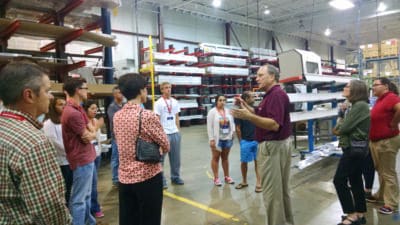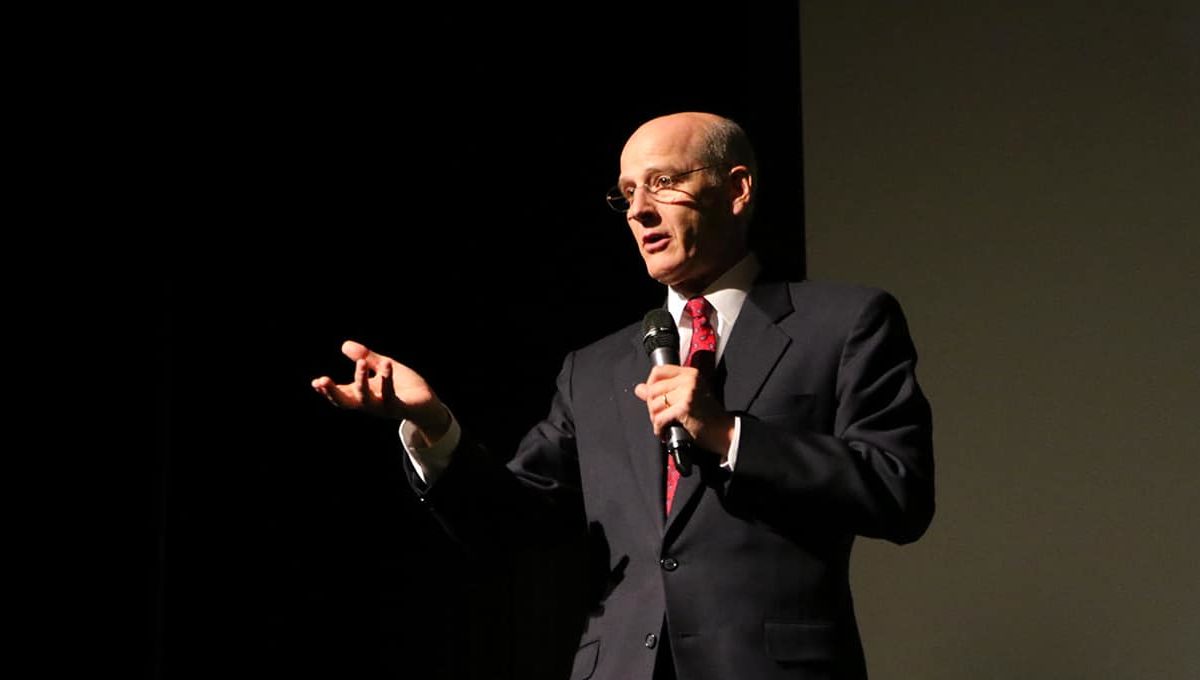
If you happened to be walking by the Arts Council Theatre in Winston-Salem last Thursday, you would not have been at fault for thinking a pep rally was happening inside or that a marching band was having a mid-day practice.
For almost two hours, the theatre was filled with the sound of music, boom whackers, and drummers. It was the district’s Parent Power event to kick off the start of the school year, and it actually was a pep rally — a rally to encourage parents to be more directly involved in their children’s education and reaffirm a community commitment to support them in that goal.
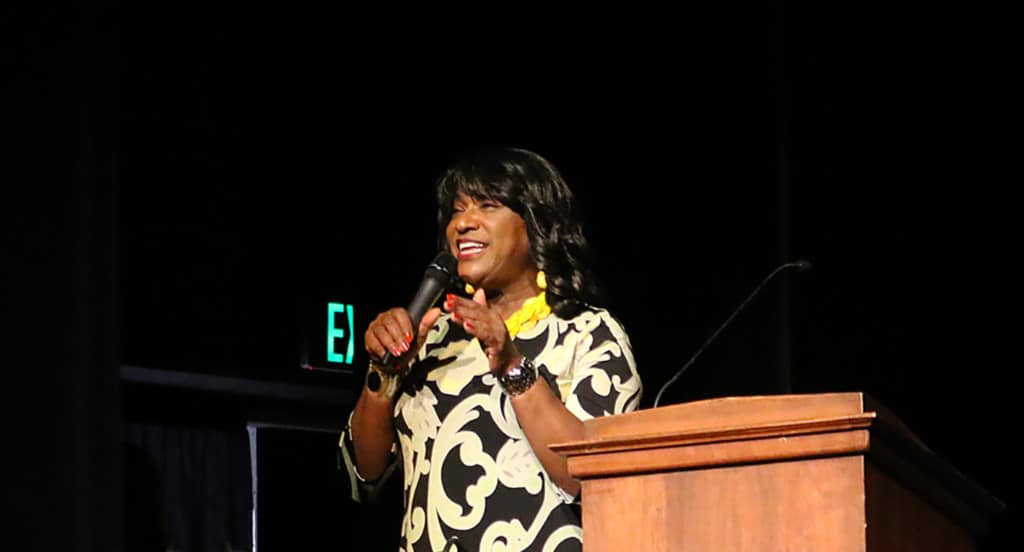
The “All In: Educating our children together” event was full of songs, signs, and inspirational videos. In addition to the festivities, the parents and community leaders in attendance heard from author and education advocate Jamie Vollmer.
Vollmer had spoken to the entire staff of the Winston-Salem/Forsyth County Schools earlier in the day, an estimated crowd of 5,000 at the city’s Lawrence Joel Veterans Memorial Coliseum.
A great morning with the 5500 strong staff at Winston Salem Forsyth schools. Have a great year! pic.twitter.com/t7Z8E0gyrJ
— Jamie Vollmer (@jamievol) August 23, 2016
At the Parent Power event, Vollmer spoke about his trajectory from a hard-nosed, bottom-line business leader to passionate public education advocate.
Vollmer’s message to the parents at the event was that they were the greatest asset for their children’s success.
“What I know for sure is that every tiny bit of research shows the most important variable for student success is parental involvement,” Vollmer said.
According to Vollmer, parental involvement even outweighs the positive and negative influences of a child’s socio-economic status.
“You can have [a student] coming from a situation that is stressed in almost every way, but if that parent has engaged in a partnership with the teachers, that student is much, much, much more likely to succeed,” Vollmer told the parents.
Vollmer was quick to acknowledge that the burden of a student’s success did not rest solely on parents.
“It’s not surprising that you as engaged parents, who are really committed to making sure your kid succeeds, can feel like you are on an island pushing a rock up a hill,” Vollmer said. “Because the system wasn’t designed for all kids.”
But Vollmer sees a shift to a more moralistic view of an education system that works for all children. He gave the example of two hypothetical children of equal intelligence but who come from different backgrounds and with different levels of parental engagement.
“Some kids take longer to learn than others,” Vollmer said. “We all know that, and yet we put them in a race … and they come to school and there is an imaginary starting line … and that first bell rings … they are off. They have to jump from pre-K across 14 hurdles until they walk across the stage and get that diploma. And you can see that the whole field is littered with kids who couldn’t do it in the right amount of time, exactly the way they were asked to.”
According to Vollmer, the only answer is an overhaul of our system of public education.
“For the first time, the moral thing to do and the practical thing to do are the same thing,” Vollmer said.
Vollmer closed by telling the parents to talk to their neighbors, friends, and family about the importance of helping all children succeed, to convince them of the importance of public education, for their own well being and prosperity. Vollmer pointed out that in communities with rising student achievement, there is a corresponding drop in crime and an increase in property values and tax revenue.
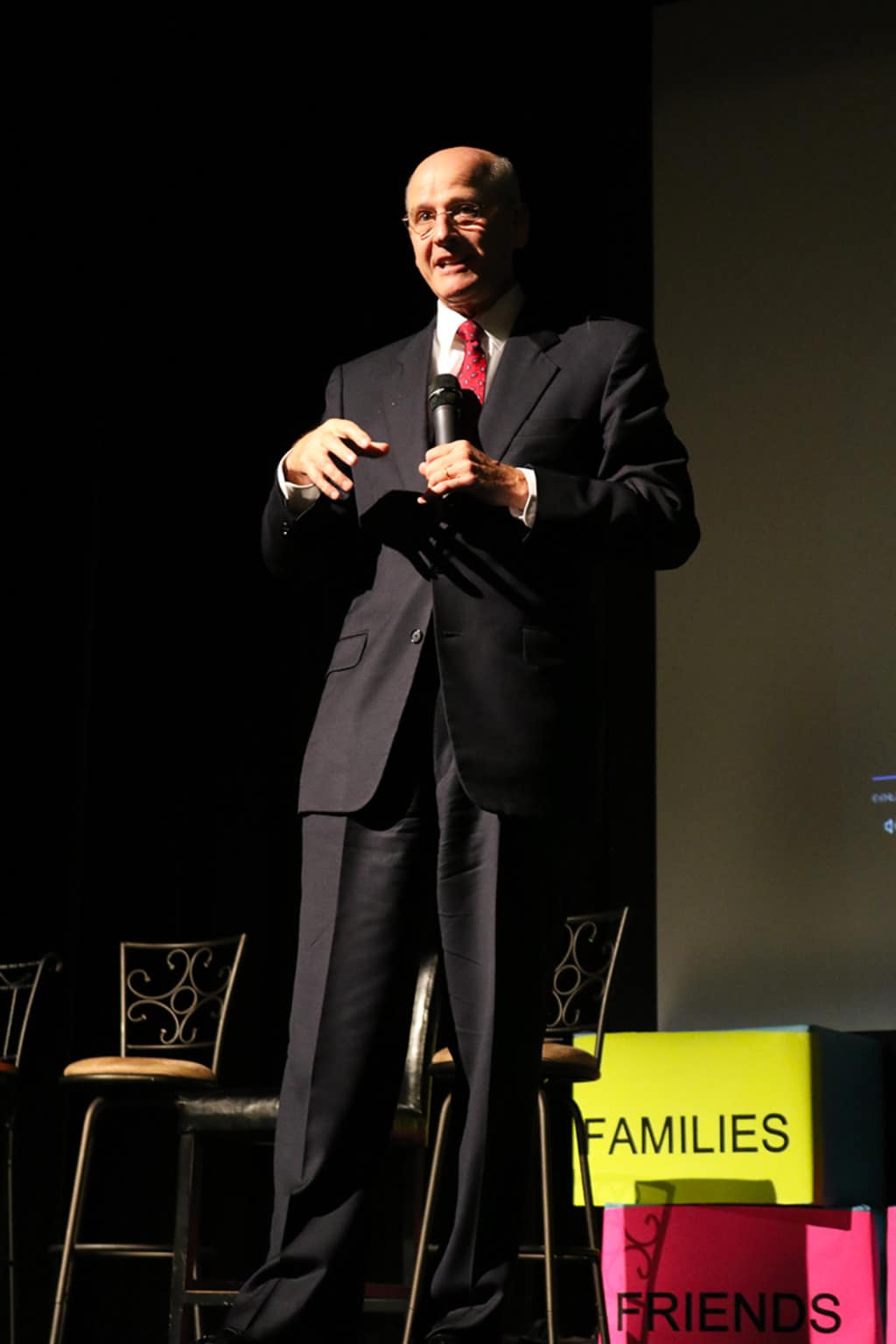
One of the event partners was Great Expectations, a new multi-year initiative of the Kate B. Reynolds Charitable Trust that works to align community participation and resources to ensure all children in Forsyth County are meeting developmental milestones in the first five years of life and enter Kindergarten ready for school and for the learning that will follow.
One of the initiative’s key programs, Forsyth Family Voices, is an effort to involve more parents of young children in the discussion of how to improve the delivery of child and family services in the county.
According to Great Expectations Director Khari Garvin, a deeper and broader engagement with parents and families is a core tenant of the initiative and at the heart of the Forsyth Family Voices work.
Garvin says the unique focus of the program provides parents and families an opportunity “…to share their perspectives and opinions about the services that they receive directly with the programs and agencies who provide those services.”
“We are literally beginning to shift the culture of public and nonprofit service providers to begin engaging families in this way,” Garvin said. “The Winston-Salem/Forsyth County Public Schools is one of the lead agencies participating in the first cohort experience of Forsyth Family Voices. We supported the Vollmer event because … we share the philosophy and vision that neither schools, nor other entities providing a service to children and families, can do it alone.”
Events like Parent Power provide a way to connect with families directly and start to shift perceptions about a parent’s proactive role in a child’s education.
“The historical culture of schools has generally not been one where parents have been invited to be active partners in this way; so hearing this message is one way of informing parents of their rights and responsibilities, and empowering them to exercise those rights and responsibilities,” Garvin said.
Garvin notes that it is important to remind parents that a child’s education continues beyond the time in the classroom.
“Learning and development happens in every minute of every hour of every day,” Garvin said.
According to Garvin, empowering parents to be more involved in their child’s education has the effect of: “Extending the benefits of education and reinforcing new learning beyond the confines of the classroom; holding schools accountable to be attentive and committed to the needs of each student; and signaling to students in a powerful way the true importance of education.”
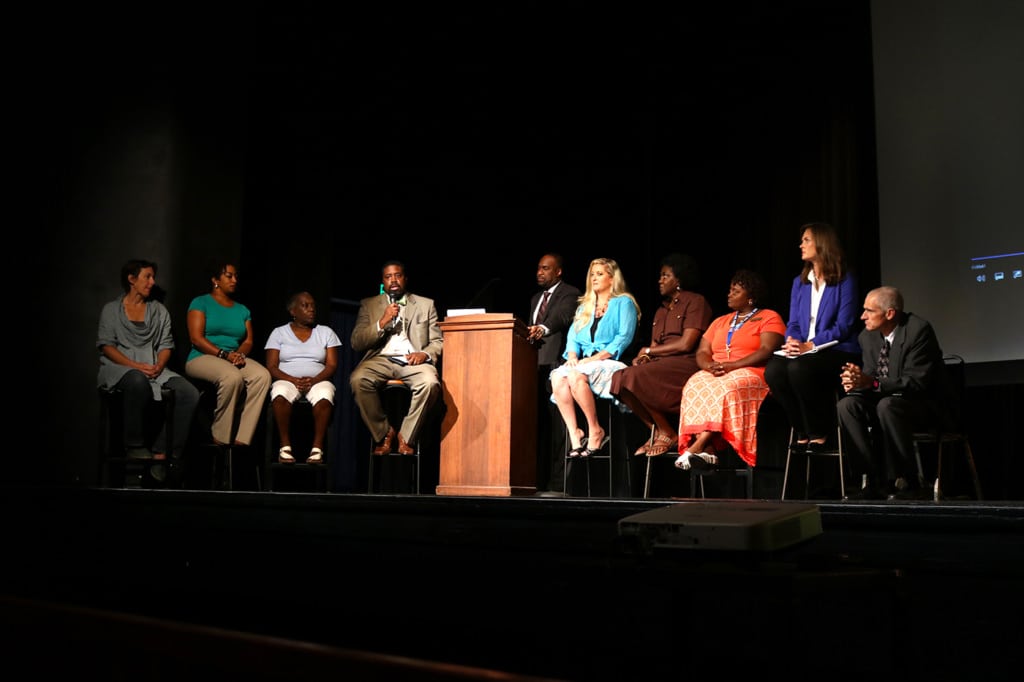
The master of ceremonies for the event was Sharon Frazier, the school district’s parent involvement program manager. Frazier, who started the Parent Power events, has been working in the district for seven years as a parent advocate.
“I am there for parents, and families, for those non-custodial parents, those relatives as parents, who are trying to help children navigate the school system, to be successful,” Frazier said. “If there are kids who don’t have that strong support, then the schools know they can call me and I can make the connection to one of our community entities, where we are going to find that support.”
Frazier started Parent Power to help parents be informed on a broad set of issues that may affect their child’s education. Past events have focused on understanding Common Core, supporting exceptional children, and assisting parents of high-school students in applying for financial aid.
“[Parent Power] is a way to make sure that parents have information and knowledge about how to work with the school system, so that their kids are successful,” Frazier said. “This was a rally format, but it’s usually a mini-conference format where parents can choose from five-to-six topics.”
For Frazier, the Vollmer visit was a spring board for parents, an enthusiastic start to a new school year. It was also a chance for the parents in attendance to see and meet representatives from local nonprofits, faith communities, and businesses.
“I wanted parents to see the faces of other people who care,” Frazier said.
Frazier likes to say that parent involvement and community engagement is the key ingredient to the recipe for student success.
“Without the parent and community engagement piece, it’s like leaving the baking powder out of a cake,” said Frazier. “It falls. It won’t rise.”
For Frazier, it is part of living and connecting in a community. And events like Parent Power, and speakers like Vollmer, are ways to encourage parents and educate community members.
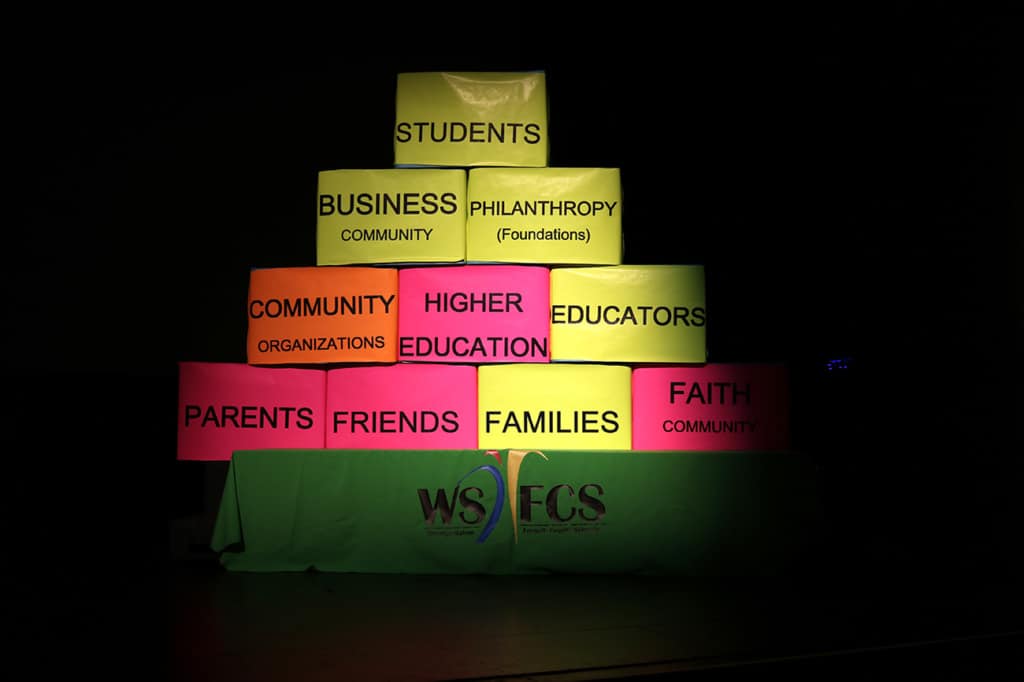
Recommended reading

